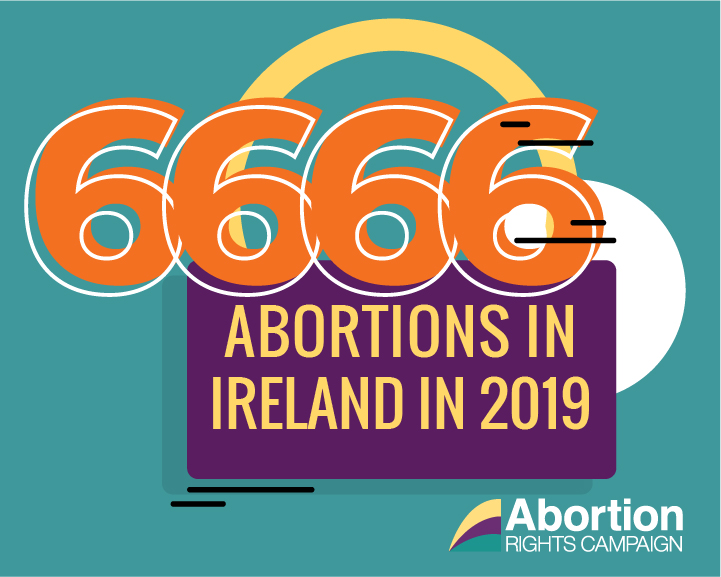“The release of Ireland’s first abortion figures demonstrates a reality we have long known to be true: Irish people get abortions. They always have, they always will. Now, for the first time in the country’s history, free, safe, legal abortion is possible; the repeal of the 8th has brought an end to forced travel overseas or importing pills illegally for many in Ireland,” said Cathie Shiels, Co-convener of the Abortion Rights Campaign.
These figures, which showed that 6,666 people had an abortion in Ireland in 2019, are not comparable to statistics used in the past. Previously, we have relied on UK data which we always knew to be an undercount that failed to capture Irish residents who gave UK addresses, travelled to other destinations overseas or imported pills illegally.
For people who can meet the strict, medically unnecessary 12 week time limit, there is clearly a greater opportunity to access healthcare at home, and this is something we can be very proud of.
However, local abortion access is not a reality for all. “Only 24 individuals obtained abortions because of a medical emergency or risk to their life or health — roughly the same number as under the extremely restrictive Protection of Life During Pregnancy Act. We know that the system still leaves too many behind. As we saw from the recently released abortion statistics from the UK, hundreds of people from the Republic are still forced overseas to access the healthcare they need and deserve at home. Many of them have received the devastating news that their pregnancy has been diagnosed with a severe foetal anomaly. Especially in the context of the Covid-19 pandemic, it is clear that exporting healthcare to the UK is unacceptable.”
“Abortion is a normal part of healthcare, and we hope that these figures will be treated in the same manner as any other form of health data. Behind the numbers are real people who needed abortions and, as the result of Repeal, were able to get them at home. The numbers reported don’t tell us about people’s experiences of doing so. The numbers don’t tell us how long someone had to travel or how difficult their journey was. Or whether they were harassed by anti-choice groups or fed misinformation by a rogue agency, who pretended to help. They can not tell us about the impact the mandatory waiting period had on people’s lives, or whether people felt respected to make their own decisions. These are all barriers which we know exist under the current law.”
“Instead of focusing on numbers, we should seek to address the many remaining problems of a system where people are still forced overseas to access healthcare we voted for at home. This should be a key priority of the new government.”


